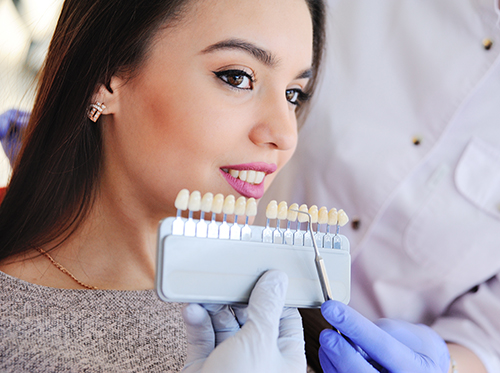Ouch! Are You Biting Your Cheeks More Often?
August 24th, 2023

You’re biting into something delicious, and, Ouch! You bite into something you didn’t mean to—the inside of your tender cheek.
Painful moments like this happen every now and again. But if you find that more frequent cheek biting means that you’re extra-cautious when eating or speaking, if you wake up with sore cheeks in the morning, or if you catch yourself habitually chewing on your cheeks during the day, it’s time to visit our Plaistow, New Hampshire office.
Causes of Cheek Biting
Many of us experience the occasional cheek chomp when we’re eating or talking. No fun! Besides the pain, a bite can cause broken skin, inflammation, a canker sore, or a mucous cyst. Luckily, the discomfort from these accidental bites generally resolves after a few days.
Sometimes, though, biting becomes a more frequent annoyance. Regular bites can be caused by several conditions, including:
- Sleep Bruxism
Bruxism is the medical term for tooth grinding. When sleepers unconsciously clench or grind their teeth as they slumber, it’s known as sleep bruxism. Sleep bruxism not only causes tooth damage, jaw problems, and facial pain—that nightly gnashing can mean bites to delicate cheek tissue.
- Problems with Dental Restorations
The placement of a crown, bridge, or implant can cause biting to occur more often if the alignment of your restoration with your other teeth isn’t ideal or has shifted, or if the restoration needs replacement.
- Wisdom Teeth
Most of us don’t have the room to welcome four new—and large—teeth. When wisdom teeth come in, they can lead to cheek bites, especially if they erupt leaning outward toward your cheeks.
- Orthodontic Misalignment
If you notice that you seem to be biting your cheek a lot when eating or speaking, it could be an orthodontic problem. When your teeth or jaws don’t align properly, if your mouth is small, or if your teeth have shifted over time, your cheeks might feel the consequences.
Treatment Options
Why see Dr. Melissa Dennison Newman? A one-time bite can be extremely uncomfortable, and might lead to inflammation or even a sore spot inside your mouth. Usually, both pain and sore spot fade in a short while, and saltwater rinses or oral gels can soothe your injured cheek tissue. Your dentist’s office can give you advice on treating minor bites.
But what about continuous biting? Regular biting injuries can lead to bigger problems. Tissue in the cheeks can thicken or erode. Scar tissue can build up inside the mouth. Ulcers and other sores can become larger and more painful.
If you’ve been biting your cheeks more often, Dr. Melissa Dennison Newman can diagnose the cause and offer you treatment options depending on the reason for this frequent biting:
- Sleep Bruxism?
Dr. Melissa Dennison Newman might suggest a nightguard to provide protection from the damaging effects of bruxism. Nightguards not only prevent further biting, they give your cheeks the chance to heal. We can custom fabricate a guard for the most comfortable and effective fit.
- Restoration Problems?
If regular cheek biting occurs after you’ve gotten a crown, a bridge, or an implant, visit our Plaistow, New Hampshire office. This might be a problem that can be resolved with a bit of reshaping, whether removing a bit of the restoration or building up a spot. If a crown or other restoration has shifted or is failing, replacement might be in order.
- No Room for Wisdom Teeth?
Most of us don’t have room in our mouth to accommodate wisdom teeth, and extracting them is a common dental procedure. Wisdom teeth can be the source of many dental problems, including impaction, shifting teeth, and even damage to surrounding teeth. If you see signs that your wisdom teeth are starting to come in, talk to your dentist about your options.
- Orthodontic Problems?
Orthodontic treatment can improve tooth and bite alignment—and can eliminate those painful cheek bites if misalignment is what’s causing them. Modern orthodontic treatment offers patients of all ages more options than ever before, including traditional and lingual braces, clear aligners, and functional appliances.
Whatever the reason for painful cheek biting, you deserve to eat and speak and enjoy your day without constant “Ouch!” moments affecting your comfort and health. If these moments are happening all too often, visit Highland Family Dental for the answers to your biting problems.




